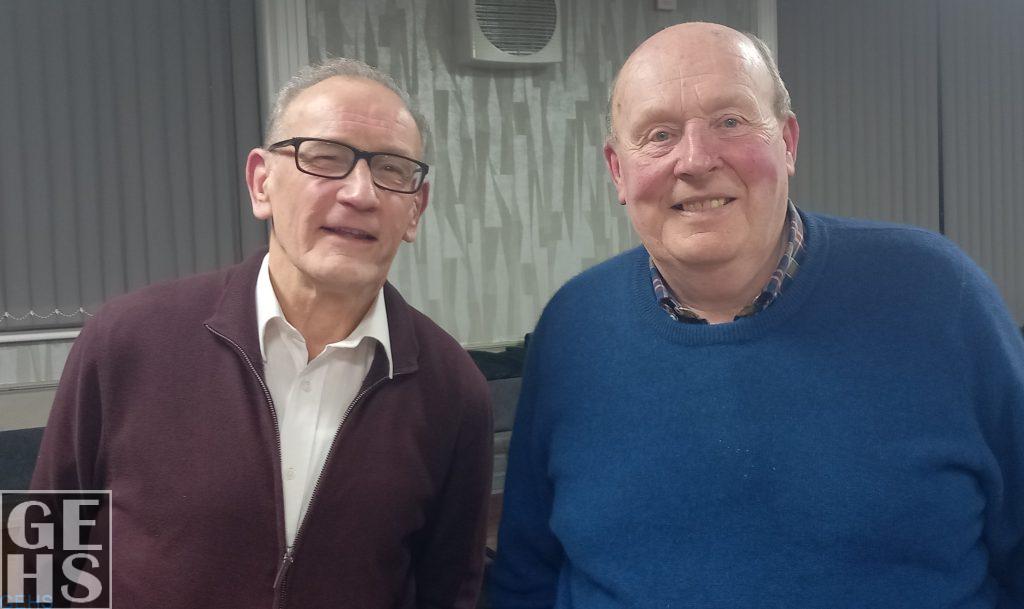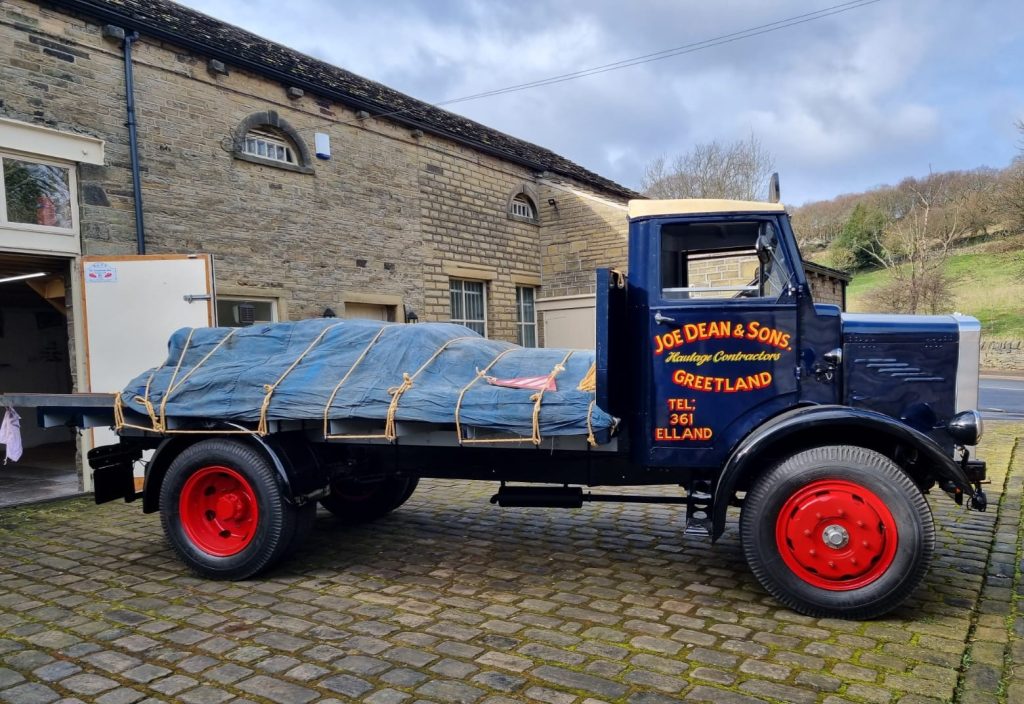Members Meeting 14th February 2024
AG introduced the speaker for the night, Alan Dean, who guided us through a slide show on The History of Joe Dean and Sons, Haulage Contractors.
Alan’s Great Grandfather, Joe Dean was a tenant farmer at Far Syke House, located at the junction of Branch Road and Saddleworth Road, Greetland.
The property at that time was rented from the Dyson family. Later, the Dysons sold the property at auction to a butcher from Hull. However, very shortly afterwards, he sold it on to Joe Dean. He, later, built the terrace of four houses at the end of Branch Road for members of his family for the princely sum of £600.
As well as the usual farming activities, they ran a haulage business using wagons and horses and would often travel to Appleby Horse Market to buy horses which they would then walk back to Greetland over a period of several days. Some of the horses would be sold on to other local farmers.
Joe and Edna Dean had four children, including Alan’s Grandfather and the driving force behind the haulage business, Joe Willy Dean.
Joe Willy persuaded his father to buy their first petrol powered wagon, which he himself drove. In June 1915 he volunteered for the Army, he was called up in 1918, but did not see active service and was demobbed in October 1919. He then persuaded his father to buy a fleet of petrol wagons. At that time a lot of haulage firms started up, buying up and using Army surplus vehicles.
The business was diverse, transporting a lot of products and materials for the textiles industries which were thriving locally, partnering with companies such as Binns and Sons, pulling rags to make shoddy for export, Elland Dying Company, when every Friday they would take a full load to Dundee, they worked on roads for WRCC, and they were also coal merchants, but this ended when the cost of maintaining coal tipper wagons became too much.
The day to day farming business continued, cattle being bought and sold at market (and then bought back as meat from the butchers a few weeks later), and hay making during the summer months – happy days.
As the business prospered, a new garage was built in 1947. Although the structure was sound, the roof was constructed on the cheap and leaked until Alan had it repaired many years later.
Eventually, they started using articulated wagons to attract more lucrative work. There was never a shortage of work for haulage companies and they often had to use subcontractors to meet the demand.
They carried a lot of cotton yarns to knitters in the Midlands, transported quarried rock for Marshalls at Southowram, plastics for Synlon Plastics, heavy engineered products and fabrications for the likes of James Lumb, Hopkinson Valves and Portland Engineering.
They developed a very good relationship with their neighbouring business, Bondina/Freudenberg and on many occasions provided them with wagons for them to dress up as floats for local events. And because of their Auntie’s connection with the Girl Guides, they also provided this same service whenever the Halifax and Elland Carnivals were on.
Alan’s many slides and narrative proved to be a joy to all who attended, bringing back very happy memories of days gone by in our small corner of the world.

